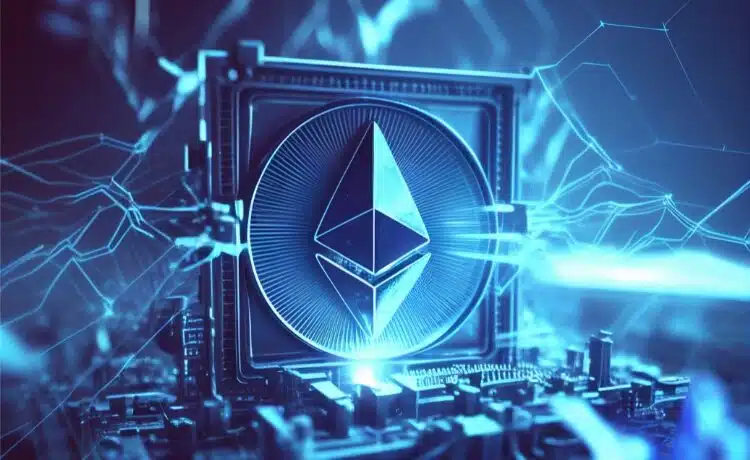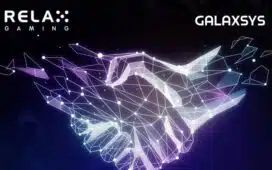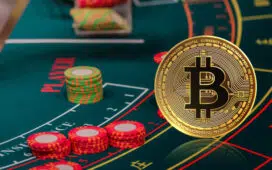The appearance of blockchain technology has brought a great deal of change because it provides both security and transparency for recording and confirming transactions. It has applications in finance, management of supply chain, and so on. Smart contracts are one step further than this and enable decentralized applications (DApps) on Ethereum, a platform for developing the latter. Ethereum is today as close to the golden goose in blockchain technology, laying an abundant egg day after day.
Decentralized Gaming Ecosystem
Ethereum has intrinsically changed the gaming world. The key is that it built a decentralized game platform, revolutionizing how people experience games and some of the most fundamental ways we enjoy them today. In the past, centralized gaming platforms have been in charge of managing virtual economies.
Ethereum’s blockchain technology can be used to design NFT-based decentralized games and build a virtual environment. In this kind of gaming world, such assets created in the game–the characters, skins, items, etc., are all considered non-fungible tokens (NFTs). The NFTs are stored on the blockchain so that those who have captured them can own and control their digital assets.
Smart Contracts: Redefining Transactions
With a technology that relies on an automated, transparent process of change in place (changing previously imperceptible terms and conditions without members’ knowledge), smart contracts have truly revolutionized transactions in the gaming industry. During the era of traditional games, buyers or sellers needed to bypass intermediaries for transactions in-game assets such as buying and selling virtual items. This led to a lack of trust, which is bad news that could never be considered good.
Another thing is that smart contracts are very transparent. All transaction details can be traced in the Ethereum casino and made available to anyone on the blockchain. It’s cheap; on top of all this, another advantage compared with traditional financial institutions such as banks is its low costs; there aren’t a lot of people involved in making transactions, so fees are more bass than 10 cents per trade (about $32 In-game assets are real and inalienable, meaning players can be certain about their worth.
Ownership and Interoperability
Through tokenization, Ethereum imbues gamers with the real ownership that in-game assets afford. In traditional digitalization, players may invest much time and money accumulating virtual items. But these assets neither belong to them alone nor reside on their computers–they’re stored in some mystical location outside the owner’s control (imagine where all those “disintermediation servers” were located).
Owning one’s digital belongings, NFT can make such a difference. These tokens are secured by crypto-technology so that the player always has complete control. They can exchange, trade, or even sell their NFT (s) on Delilah’s own.
Play-to-Earn Model
Ethereum has forever changed high stakes, big bucks, and The play-to-earn model. Many players can now make good money playing games. At the very core of this transition are non-replaceable phonemes (NFTs), a landmark innovation spawned by Ethereum. All NFTs are owned openly on the blockchain.
Now, players can make money off their own real-world assets. NFTs are bought and sold in decentralized public markets, which naturally means prices have soured lately, like the rest of the cryptocurrency world.
NFTs in Gaming
There has never before been a more novel digital asset. NFTs could be the game-changing solution that turns old business models on their heads. The awarding of selected items to runners-up in sponsored games and tournaments or presentations at live events is part of everyday life for gadget fans all over Japan, often with some officials looking around an empty hall after handing out thousands of Facebook Non-fungible tokens (often abbreviated as NFTs), which are flow combinations locked on the blockchain, must generally be based upon standards like ERC-721 or ERC-1.
Inside the game, a series of assets, including characters and qualities, can be classified as NFTs. Each of them has its own price and rarity value. They offer true ownership to players, who can exchange these virtual items without the risk of counterfeiting or large third-party fees. Digital assets can be bought and sold securely on internal marketplaces based on their blockchains.
Blockchain in Online Gambling
In the world of decentralized online gambling, Ethereum is king. Since smart contracts ensure the games are fair and transparent by doing away with centralized platforms, there’s no need to trust anyone. Users can participate in provably fair games. Because transactions and results are recorded on the blockchain, it is almost impossible to manipulate.
The decentralization and programmability of the Ethereum mean that numerous DApps and Ethereum casino sites for online gambling applications have been created, reinventing this environment as one geared towards fairness and trustworthiness with players in control.
Decentralized Autonomous Organizations (DAOs)
Ethereum makes it possible to form Decentralized Autonomous Organizations (DAOs), which profoundly transform decisions in many communities, including the gaming world.
DAOs are organizations built on smart contracts and extenders of authority to token holders, providing a decentralized platform for collaborative decision-making.
Enhanced Security and Transparency
Ethereum has significantly improved security and transparency within the gaming industry. The blockchain’s immutable ledger means that it can never be changed once data is recorded. Once certain steps are taken, they cannot be tampered with or bypassed afterward–fraudulent activities such as cheating and unauthorized asset duplication become impossible. This builds trust between players, who can cross-verify the authenticity and origin of in-game items or trading.
Moreover, Ethereum provides secure transactions and payments through smart contracts. Peer-to-peer transactions also remove the need for intermediaries, lowering the risks of fraud and hacking.
Conclusion
To sum up, Ethereum has transformed the gaming industry in many ways. It has offered players true ownership of in-game assets through NFTs, promoted the play-to-earn model that can make money by playing games, and established decentralized autonomous organizations (DAOs) for community-based governance. Ethereum’s blockchain technology has brought greater security, transparency, and trust to the gaming environment. It is redefining relations between players and developers for a new paradigm of an open, innovative games world where the player comes first at last!






